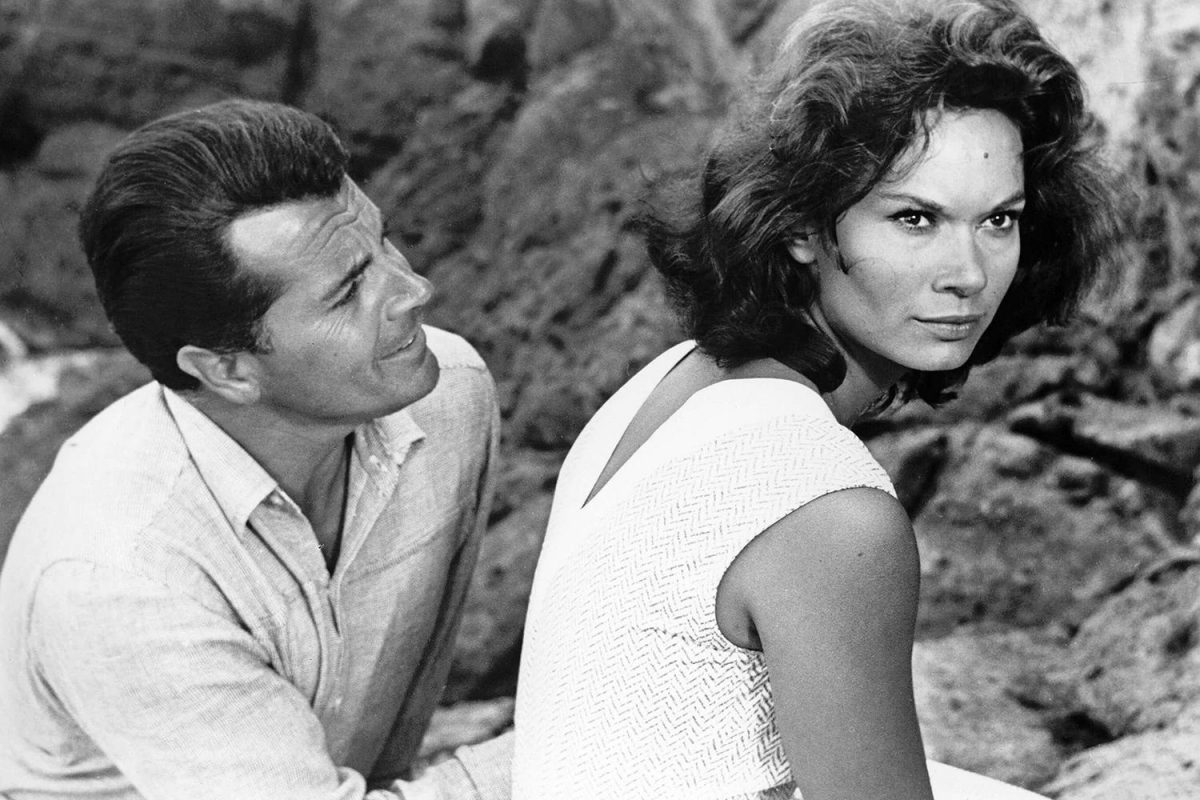In answer to the question, “What is the best film of 1961?”
by Pauline Kael
It had begun to look as if only those with a fresh eye — working in poverty and inexperience and in underdeveloped countries, discovering the medium for themselves — could do anything new and important (like The Apu Trilogy). The future of movies seemed to lie with film makers who didnʼt know that it had all been done before. For those with great traditions behind them, the only field to explore seemed to be comedy — and “black” comedy at that — or, at least, works which suggest black comedy: Eroicat Kagi, Breathless, The Cousins, Smiles of a Summer Night, The Seventh Seal.
LʼAvventura is, easily, the film of the year, because Antonioni, by making his movie about this very problem — depleted modern man — demonstrated that the possibilities for serious, cultivated, personal expression in the film medium were not yet exhausted. LʼAvventura is a study of the human condition at the higher social and economic levels, a study of adjusted, compromising man — afflicted by short memory, thin remorse, easy betrayal. The characters are passive as if post-analytic, active only in trying to discharge their anxiety — sex is their sole means of contact and communication. Too shallow to be truly lonely, they are people trying to escape their boredom in each other and finding it there. They become reconciled to life only by resignation. Claudia, the only one capable of love, is defeated like the rest; her love turns to pity.
Itʼs a barren view of life, but itʼs a view. Perhaps compassion is reserved for the lives of the poor: the corruption of innocence is tragic in Shoeshine; the intransigeance of defeated man is noble in Umberto D.; hope and gullibility are the saving grace of Cabiria. But modern artists cannot view themselves (or us) tragically: rightly or wrongly, we feel that we defeat ourselves — when were we innocent? when are we noble? how can we be “taken in”? Antonioniʼs subject, the fall (that is to say, the exposure) of rich, handsome, gifted man is treated accumulatively and analytically — an oblique, tangential view of love and society, a view not raised to the plane of despair. In its melancholy LʼAvventura suggests Chekhov. Because it is subtle and ascetic, yet laborious in revealing its meanings, it suggests the Henry James who chewed more than he bit off. And perhaps because the characters use sex destructively as a momentary black-out, as a means of escaping self-awareness by humiliating someone else, it suggests D. H. Lawrence. Most of all, I think, it suggests the Virginia Woolf of The Waves: the mood of LʼAvventura is “Disparate are we.” Antonioni is an avowed Marxist — but from this film I think we can say that although he may believe in the socialist criticism of society, he has no faith in the socialist solution. When you think it over, probably more of us than would care to admit it feel the same way. A terrible calm hangs over everything in the movie; Antonioniʼs space is a kind of vacuum in which people are aimlessly moving — searchers and lost are all the same, disparate, without goals or joy.
For those who can take movies or leave them alone, La Dolce Vita is obviously the film of the year: audiences can enjoy its “Vice” (the name they give their own fantasies when somebody else acts them out) and they can hold up their hands in horror (peeking through the fingers) at all that wicked decadence and all those orgies.
Film Quarterly






1 thought on “Note on L’Avventura – by Pauline Kael”
Please post The Icemen Cometh (1973)